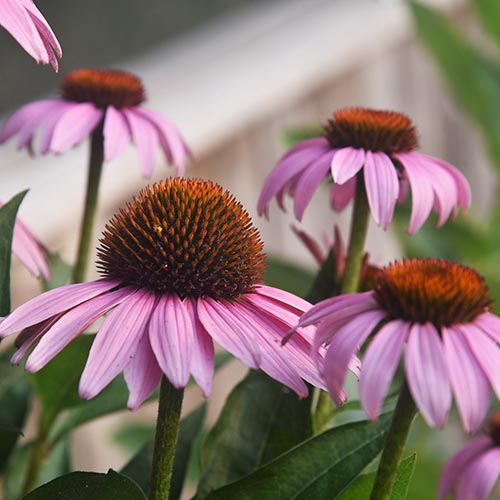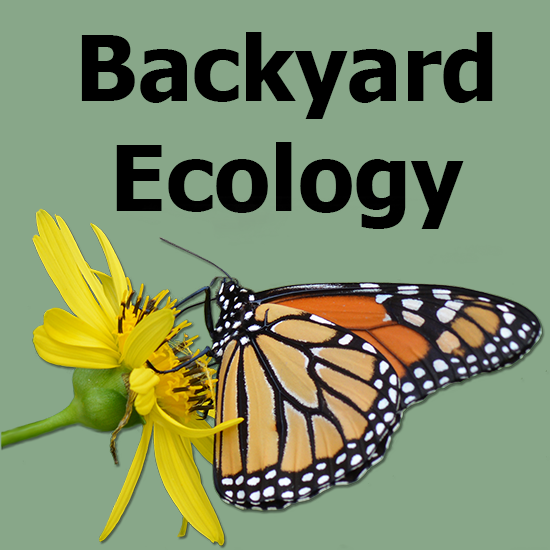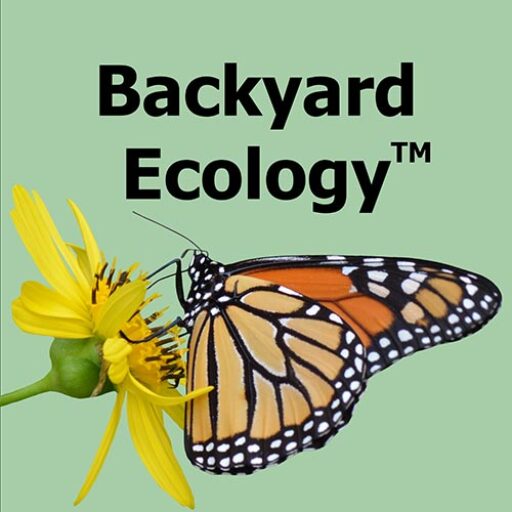
Listen to this Episode:
- From this webpage:
- Find the media player located under the episode picture.
- Click on the green triangle to listen to the audio for this episode.
- From your favorite podcast listening platform:
- Search for “Backyard Ecology.”
Show notes:
The interest in gardening with native plants has been growing steadily, and I am very excited about that fact. Growing native plants in our gardens and landscapes can have many benefits – both for us as the gardeners and for the pollinators and wildlife that also call our yards home. Plus, we have some absolutely gorgeous native plants that deserve to be recognized in their own right.
In this episode of the Backyard Ecology podcast, we talk with Jennifer Ceska about gardening with native plants. Jennifer is a Conservation Coordinator with the State Botanical Garden of Georgia at the University of Georgia, Athens. She and her colleagues are doing some amazing work and I am grateful for their efforts to help others learn about and grow native plants.
Jennifer and I both love sharing our knowledge and passion of the natural world, as well as continuing to learn ourselves. We’ve just always been naturally curious and that is reflected in this very informal conversation.
One of the many topics we discuss is growing regionally appropriate native plants. This is especially important because many plants are native to one part of the country, but not another. For example, I was recently surprised to learn that common milkweed (Asclepias syriaca) isn’t native to Georgia and can actually become problematic there because it spreads so aggressively.
Jennifer said that she was surprised as well when she first learned that common milkweed isn’t native to Georgia because so many resources and online maps show it as native across the eastern U.S. However, newer research has shown that it isn’t native to Georgia which is one of the reasons why the State Botanical Garden of Georgia has created a brochure discussing the best milkweeds to plant in Georgia and the ones to avoid.
Other topics of conversation include some of our favorite native species to plant in smaller areas and cues to care for native plant gardens or even when growing native plants in fields and “wilder” areas. Jennifer also shares with us some of the fantastic native plant programs and resources available through the State Botanical Garden of Georgia. If you live in Georgia, then I encourage you to take a look at these valuable resources.
Links:
- Jennifer’s email: jceska@uga.edu
- Brochure about what milkweeds to grow in Georgia gardens: https://botgarden.uga.edu/wp-content/uploads/2018/03/milkweedinformation.pdf
- State Botanical Garden of Georgia: https://botgarden.uga.edu/
- Georgia Plant Conservation Alliance: https://botgarden.uga.edu/conservation-science/georgia-plant-conservation-alliance/
- Georgia Native Plant Initiative: https://botgarden.uga.edu/conservation-science/georgia-native-plant-initiative/
- Connect to Protect: https://botgarden.uga.edu/conservation-science/connect-to-protect/
- Georgia Pollinator Plants of the Year Program: https://botgarden.uga.edu/conservation-science/pollinator-plant-program/
- Georgia Grasslands Initiative iNaturalist project: https://www.inaturalist.org/projects/georgia-grasslands-initiative-ggi
- Backyard Ecology’s website: https://backyardecology.net
- Backyard Ecology blog: https://www.backyardecology.net/blog/
- Backyard Ecology’s Patreon page: https://www.patreon.com/backyardecology
- Subscribe to Backyard Ecology emails: https://www.backyardecology.net/subscribe/
- My email: shannon@backyardecology.net
Episode image:
- Purple coneflowers in a pollinator garden
- Photo credit: USFWS, public domain

Backyard Ecology: Exploring Nature in Your Backyard
Nature isn’t just “out there.” It’s all around us, including right outside our doors. Hi, my name is Shannon Trimboli, and I am the host of Backyard Ecology. I live in southcentral Kentucky and am a wildlife biologist, educator, author, beekeeper, and owner of a nursery specializing in plants for pollinators and wildlife conservation. I invite you to join me as we ignite our curiosity and natural wonder, explore our yards and communities, and improve our local pollinator and wildlife habitat. Learn more or subscribe to my email list at www.backyardecology.net.

Leave a Reply